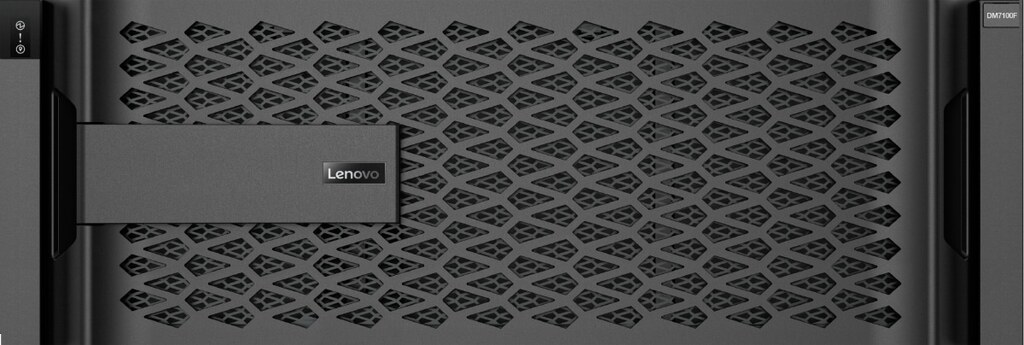NAS Storage
The Ultimate Solution for Your Data Storage Needs
NAS storage provides a safe and secure centralised storage device that functions stores data centrally and can be shared by many users. With its seamless integration into your computer network, NAS allows you to store and retrieve data from anywhere, anytime.
At Fortuna Data, we offer NAS storage solutions that are fast, secure, and easy to use. Our range of NAS systems, including the Lenovo ThinkSystem DM based on NetApp and small SOHO NAS for office use, ensures that you have the flexibility to choose the right storage option for your needs. Plus, with the ability to easily add additional storage as required, NAS remains an economical choice without compromising on features.

One of the key advantages of NAS storage is its ability to provide multiple users access to a shared pool of disk space. Through network shares, the data stored on NAS can be accessed as local drive letters on users’ PCs, with access permissions controlled by the NAS. This feature promotes collaboration and ensures seamless data sharing among team members.
Data protection is of utmost importance, and our storage solutions offer a variety of options to safeguard your valuable information. Depending on the NAS model, we utilise either RAID or Object storage technology to protect your files from data loss. Whether you need to store data for days, months, or even years, our range of storage options, from small two-drive NAS systems to multiple terabyte storage systems, ensures that your data remains safe and secure.
When it comes to convenience and accessibility, NAS truly shines. You can access your data stored on NAS through a simple web browser or a dedicated mobile app, even while on the go. Whether you have multiple PCs, notebooks, or smartphones, NAS allows you to connect and access your data effortlessly. It’s a perfect solution for businesses, families, and individuals alike.
Setting up NAS is a breeze. With a user-friendly web GUI, installation and configuration can be done in minutes. Say goodbye to the need for a dedicated file server, as NAS eliminates the need for software or client licensing costs. It seamlessly integrates with Microsoft Active Directory or Linux LDAP, ensuring a smooth and hassle-free setup process.
But the benefits of NAS don’t stop there. In addition to being a cost-effective solution, NAS provides a scalable storage option, allowing for increased flexibility as your data needs grow. It offers high reliability, performance, and low-cost storage, making it suitable for homes, small office/home office (SOHO) setups, and enterprise businesses without dedicated IT teams. With NAS, you can integrate it seamlessly with Windows or Linux using protocols such as CIFS, NFS, iSCSI, or FC, and store anywhere from 10TB to 25PB of data.
When it comes to downtime, NAS storage ensures that your data is accessible 24/7, no matter what. This uninterrupted access to data not only keeps your business productive but also enhances customer service by providing quick and efficient responses. With NAS, you can say goodbye to the frustration of data outages and the negative impact they can have on your business.
Key Features of NAS Storage:
- Highly reliable, high-performing, and cost-effective storage solution
- Easy operation, perfect for homes, SOHO, and businesses without dedicated IT teams
- Integration with Windows or Linux using protocols like CIFS, NFS, iSCSI, or FC
- Scalable storage options from SOHO to enterprise level
- Provides both block and file storage
- Ensures data protection from hard drive malfunctions
- Easy sharing of data across networks
- Access data anywhere through a web browser or mobile app
- Keeps your information secure from corporations
- Compatible with notebooks, smartphones, and other devices
In addition to its core functionality, NAS offers a range of advanced features to enhance your storage experience. These include online capacity expansion, backup to cloud services like Amazon S3, backup and restore from attached storage or remote shares, compression, deduplication, and much more.
When it comes to storage protocols, our solutions support a wide range of options, including TCP/IP, SMB/CIFS, NFS, SNMP, FTP/SFTP/FXP, HTTP, HTTPS, Telnet, SSH, AFP, WebDAV, Bonjour, TFTP, and more. This ensures seamless integration into your existing network infrastructure and compatibility with various devices.
NAS supports various volume formats, including EXT3, EXT4, XFS, NTFS, VMFS, and ZFS, allowing you to choose the format that best suits your system environment. It also offers support for VMware ESXi, iSCSI, FC/FCoE, NFS, and VAAI, ensuring compatibility with virtualisation applications.
In conclusion, NAS is the ultimate solution for fast, secure, and easy-to-use data storage. Whether you’re a business looking for a reliable storage solution or an individual seeking a secure way to store cherished memories, offers the flexibility, accessibility, and security you need. Say goodbye to data loss, downtime, and excessive costs—choose NAS storage for all your storage needs.
Read our latest blog post on the Synology HD6500 here.
If you need a quotation or more information please contact us using the details below.
